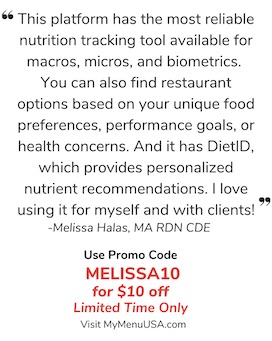
Have you noticed subtle shifts in your cognitive ability — a forgotten name here, a misplaced item there? Here are 10 ways to keep your brain healthy to help prevent this mayhem!
Do you feel like your brain is moving slower as you age? It’s not just in your head! Once you hit 40, the volume of your brain decreases in weight at a rate of approximately 5% per decade. (1) But here’s the good news. You have the power to defy this trend. Prioritizing brain health can prevent cognitive decline to avoid changes in your daily work life and social activities.
Aging is typically associated with decreased processing speed, short-term memory, selective attention, and executive function. (2) So, I’ve put together insights about how to have a healthy brain, with 10 tiny steps you can take to keep cognition up and keep your brain from shrinking as you age.
Below are the top areas we’ll cover for brain health. Jump to any section by clicking it below, or keep reading.
10 Ways to Keep Your Brain Healthy
- 1. Cultivate Gratitude for Better Brain Health
- 2. Eat Brain Healthy Foods
- 3. Strategize Your Supplements
- 4. Exercise, for Your Brain
- 5. Engage in Brain Games
- 6. Healthy Socializing for Brain Health
- 7. Harness the Power of the Sauna
- 8. Get the Sleep You Need
- 9. Monitor Heavy Metal Exposure
- 10. Protect your Head
- Take-Home Points for Brain Health
1. Cultivate Gratitude for Better Brain Health
Gratitude Grows Your Brain
It turns out that gratitude isn’t just a feel-good emotion—it’s a brain booster and a top way to keep your brain healthy. In a recent study, higher levels of gratitude were associated with better cognitive function adjusting for age, sex, education, marital status, and depressive symptoms. That means practicing gratitude for all the little things that are going right is one way to keep your brain healthy as you age.
Ever heard the saying “count your blessings”? Turns out, there’s real science behind it!
- Studies have found that practicing gratitude is associated with higher brain volume, especially in the amygdala – the brain’s emotional powerhouse. This means that by simply acknowledging the good stuff in your life, you’re helping your brain grow and thrive.
- The amygdala is the part of your brain that processes emotion and memory. (3) Our emotions, brain, and body are connected in impactful ways, and gratitude may also help the amygdala reduce inflammation in our bodies. (4)
Practice Food Gratitude
Before you dig into your next meal with brain-healthy foods, take a moment to pause and give thanks for the nourishing foods on your plate. Whether it’s a vibrant veggie stir-fry or a delicious smoothie, savor the flavors and express gratitude for the abundance in your life.
Speaking your gratitude confirms its importance and reinforces the behavior. An example could be, “I’m so blessed to have access to a farmer’s market or co-op close by.”
High-Five Your Brain
Each time you practice gratitude, give yourself a visual high-five! Reinforce your success and wire that positive habit into your brain. Remember, every thank you is like a little brain workout, strengthening those neural connections and boosting your mental resilience.

2. Eat Brain Healthy Foods
Nourish your noggin from the inside out! Curating a healthy diet pattern will benefit your brain along with the rest of your body.
MINDful Eating
Prioritize plant-based brain-healthy foods rich in phytonutrients. Phytonutrients are disease-fighting compounds found in all colors of plant-based foods, including white, brown, and black. Varying colors get you different brain-boosting benefits!
Works towards a balanced diet pattern like the MIND diet, associated with a lower risk of dementia in middle-aged and older adults. (5)
Ultra-Processed? No Thanks!
Step away from overly processed foods in the snack aisle and limit ultra-processed foods – the silent saboteurs of brain health! Loaded with sugar, sodium, and saturated fat, plus poorly tested additives, these edible culprits aren’t real food and have been linked to cognitive decline and poor brain function. (6) See my latest article on Ultra-Processed Foods and check out the Non-UPF Program to learn more about recognizing and reducing ultra-processed foods in your diet.

3. Strategize Your Supplements
Strategizing your brain supplements is a smart step. As a dietitian dedicated to promoting a healthy, whole-food diet first approach, supplements may still be needed to fill nutritional gaps and support cognitive function—particularly when your diet lacks key brain essential nutrients like B12, folate, vitamin D, iron, and zinc. Achieving the right balance is crucial, so work with a dietitian to evaluate your micronutrient intake. (7,8)
4. Exercise, for Your Brain
Lace up those sneakers! Exercise is not just about sculpting those muscles—each stride, pedal, or stretch is a powerful workout for your brain to break barriers, too! Exercise enhances neurogenesis and brain plasticity, so physical activity can help serve as a therapeutic tool to prevent, delay, or treat cognitive decline and keep your brain healthy as you age. (9, 10, 11)
Exercise Improves Memory
Although aging is associated with a natural decline in cognitive function, don’t let memory decline steal your spotlight in your golden years. Many brain experts believe exercise is the single most important thing you can do for your brain!
Say goodbye to brain fog and hello to sharper recall! Studies in both rodents and humans have shown that long-term exercise is helpful in both delaying the onset of cognitive decline and dementia as well as improving symptoms in patients with an already existing diagnosis. Here’s how exercise takes effect:
- Boosts Brain-Derived Neurotrophic Factor, a key player in cognitive improvement and mood regulation (12)
- Amplifies Attention (13)
- Decreases Memory Decline (14)
- Improved Executive Functions, like decision-making, memory retrieval, and impulse control. (15)
Exercise is one of the top 10 ways to keep your brain healthy as you age. See more about this in my other article: Why Exercise is So Important to Keep Your Mind Sharp.

5. Engage in Brain Games
Brain games are like a gym workout for your mind – they help keep your brain active, agile, and ready to take on any challenge. Research shows that engaging in game-based brain training, such as Sudoku or word games, can lead to a myriad of cognitive benefits, including: (16)
- improved processing speed
- grammatical reasoning
- spatial working memory
- episodic memory scores.
Try Brain Games
By tackling new challenges and pushing your cognitive limits, you encourage neuroplasticity – the brain’s ability to adapt and rewire itself in response to new experiences. If you’ve been enjoying Wordle, Connections, or the Mini (all of which I love!), why not add another? Adding a few more brain exercises can help stimulate your mind and promote neuroplasticity
Whether you’re a Sudoku aficionado or a word puzzle whiz, try a diverse array of games to keep your brain on its toes. And if you’re looking to step away from your phone, consider games like Chess, speed Scrabble, or even dusting off that old Rubik’s Cube for a hands-on challenge

6. Healthy Socializing for Brain Health
As a health expert, I can’t stress enough the importance of healthy socializing for overall well-being; it may even be good for your brain health! Research suggests that maintaining strong social connections may help support cognitive function and mental health. (17)
Social Activities and Memory
Engaging in social activities that challenge you to think in new ways or try new things may stimulate various regions of the brain associated with cognition.
Combining Social Life with Healthy Activities for Brain Health
Here are some creative ways to merge your social life and healthy activities and reap the dual benefits:
- Move and Mingle: Opt for activities like hiking, biking, or taking a new workout class with friends or loved ones. Turn your date night into a date-day adventure.
- Revamp Your Lunch Dates: Swap traditional lunch dates for active outings like an afternoon walk or bike ride with friends. I enjoy walking to a coffee destination with a friend and then enjoying a coffee-talk-and-walk outing!
- Dinner and a Sweat Session: Transform your typical dinner and movie night into an active evening by exercising together. Whether dancing to your favorite tunes or working out together while watching an action film—incorporating physical activity into your social plans adds an extra layer of fun and fitness.
Move exercise to the top of your to-do list—your brain and your social circle will thank you!
7. Harness the Power of the Sauna
Regular sauna use isn’t just about relaxation – it may also profoundly affect your brain health and overall well-being. Research suggests that sauna bathing could be a key player in staving off neurodegenerative diseases and promoting longevity. The sauna has many brain benefits, including the following.
Reduced Risk of Age-Related Diseases
Studies have shown an association between sauna use and a decreased risk of various age-related conditions, including cardiovascular disease, neurodegenerative diseases, metabolic dysfunction, and weakened immune function. (18) Bonus it also helps you sweat out heavy metals. (19)
Sauna bathing is one of my favorite of the 10 ways to keep your brain healthy! I maximize my sauna time by stimulating my mind and listening to educational podcasts or audiobooks.
8. Get the Sleep You Need
The difference between a good night’s sleep and a bad night’s sleep is like night and day – pun intended! I have a whole article on ways to stop tossing and turning at night, but here are three of the top ones to remember.
- Gradually Adjust Your Bedtime: If you’re a night owl struggling to rise with the early birds, don’t fret. Start by making minor adjustments, like going to bed just 15 minutes earlier each week.
- Mindful Eating for Better Zzz’s: If a hefty dinner leaves you tossing and turning, try downsizing your dinner portion and opting for a larger lunch.
- Caffeine Curfew: From noon onwards, gradually increase your caffeine intake by 5 minutes daily.
Pay attention to how the changes you implement impact your sleep and overall well-being.
9. Monitor Heavy Metal Exposure
While heavy metals may not always be visible to the naked eye, their presence can have profound effects on our well-being, including serious neurological issues. (20) From contaminating our air and water to lurking in our soil, these metals pose a significant risk to our health.
According to the World Health Organization, heavy metals rank among the top 10 chemicals of major public health concern. (21) Although the incidence is low in the US, I’ve still had clients with significantly elevated heavy metal results in a 24-hour urine collection. Here are three ways to take action.
A. Water Quality Check
Start by ensuring the safety of your drinking water.
- See what reports are publicly available.
- Use a water filter that filters out heavy metals and other chemicals.
- Consider testing your water for heavy metal contamination to identify potential health risks.
B. Air Filtration
Invest in a HEPA air filter to help reduce your exposure to airborne heavy metals. Clean air is essential for maintaining optimal neurological health. If you’ve been impacted by the California fires, I recommend using a HEPA air filter in your bedroom and, if possible, in your workspace. See these tips on the hazards of smoke and how to clean after wildfires, which are essential to protect your brain.
C. Nutritional Assessment
Consult a registered dietitian specializing in functional nutrition or a functional medicine MD to evaluate your heavy metal risks. In addition to environmental causes, certain food sources can contribute to increased heavy metal intake, and personalized dietary guidance can help mitigate this risk.
10. Protect your Head
You can’t function without your brain, so protecting your head is a no-brainer! Head injuries can have lasting effects on your cognitive abilities and overall well-being. I’ve known several people with head injuries from ladder falls, biking accidents, and sports injuries. They all wish they would have taken better precautions.
Helmet Up for Safety
Strap on a helmet to protect your most vital organ. Studies have shown that helmet use reduces the risk of head injury by a staggering 85%, brain injury by 88%, and severe brain injury by at least 75%. That’s some serious protection for your noggin!
Whether you’re biking, scooting, skating, or hitting the slopes, a helmet is your brain’s best friend. And it’s not just for you – setting a good example by wearing a helmet can inspire your kids or grandkids to do the same, potentially saving lives in the process. (22)
Ensure your helmet fits snugly and is securely fastened to your head. A properly fitted helmet maximizes its protective benefits and keeps you safe during your adventures.
Stay Safe on the Ladder
Having personally experienced a concussion and worked with clients recovering from traumatic brain injuries, I can attest to the importance of being cautious, especially when working at heights. Falls from ladders are a common cause of head injuries, but with a few smart precautions, you can significantly reduce your risk.
- Get a Spotter: When tackling tasks like cleaning gutters or trimming trees, enlist the help of a ladder spotter to ensure stability and safety. It’s a small step that can prevent big falls.
- Maintain Three-Point Contact: When ascending or descending a ladder, always maintain three points of contact – two hands and a foot or two feet and a hand. This simple technique minimizes the risk of slips and falls, keeping you steady and secure. (23) Learn more about protecting your head with tips from the CDC.

Take-Home Points for Brain Health
Keep your brain in the game, and let’s thrive together! What brain-healthy first steps will you take today? Whether expressing gratitude for the little things, evaluating your micronutrient intake with a nutrition expert like me, or strapping on a helmet before hitting the slopes, every action you take is a step towards a brighter, sharper future.
If you have any questions or want to share your brain health successes, feel free to DM me at Melissas Healthy Living on Instagram. Here’s to a healthier, happier brain – today and always!
References
- Peters R. Ageing and the brain. Postgrad Med J. 2006;82(964):84-88. doi:10.1136/pgmj.2005.036665
- Murman DL. The Impact of Age on Cognition. Semin Hear. 2015;36(3):111-121. doi:10.1055/s-0035-1555115
- Tani Y, Koyama Y, Doi S, et al. Association between gratitude, the brain and cognitive function in older adults: Results from the NEIGE study. Arch Gerontol Geriatr. 2022;100:104645. doi:10.1016/j.archger.2022.104645
- Hazlett LI, Moieni M, Irwin MR, et al. Exploring neural mechanisms of the health benefits of gratitude in women: A randomized controlled trial. Brain Behav Immun. 2021;95:444-453. doi:10.1016/j.bbi.2021.04.019
- Chen H, Dhana K, Huang Y, et al. Association of the Mediterranean Dietary Approaches to Stop Hypertension Intervention for Neurodegenerative Delay (MIND) Diet With the Risk of Dementia. JAMA Psychiatry. 2023;80(6):630-638. doi:10.1001/jamapsychiatry.2023.0800
- Elizabeth L, Machado P, Zinöcker M, Baker P, Lawrence M. Ultra-Processed Foods and Health Outcomes: A Narrative Review. Nutrients. 2020;12(7):1955. Published 2020 Jun 30. doi:10.3390/nu12071955
- Tardy AL, Pouteau E, Marquez D, Yilmaz C, Scholey A. Vitamins and Minerals for Energy, Fatigue and Cognition: A Narrative Review of the Biochemical and Clinical Evidence. Nutrients. 2020;12(1):228. Published 2020 Jan 16. doi:10.3390/nu12010228
- Anjum I, Jaffery SS, Fayyaz M, Samoo Z, Anjum S. The Role of Vitamin D in Brain Health: A Mini Literature Review. Cureus. 2018;10(7):e2960. Published 2018 Jul 10. doi:10.7759/cureus.2960
- van Praag H. Neurogenesis and exercise: past and future directions. Neuromolecular Med. 2008;10(2):128-140. doi:10.1007/s12017-008-8028-z
- Kennedy G, Hardman RJ, Macpherson H, Scholey AB, Pipingas A. How Does Exercise Reduce the Rate of Age-Associated Cognitive Decline? A Review of Potential Mechanisms. J Alzheimers Dis. 2017;55(1):1-18. doi:10.3233/JAD-160665
- Liu PZ, Nusslock R. Exercise-Mediated Neurogenesis in the Hippocampus via BDNF. Front Neurosci. 2018;12:52. Published 2018 Feb 7. doi:10.3389/fnins.2018.00052
- Sama F Sleiman, Jeffrey Henry, Rami Al-Haddad, Lauretta El Hayek, Edwina Abou Haidar, Thomas Stringer, Devyani Ulja, Saravanan S Karuppagounder, Edward B Holson, Rajiv R Ratan, Ipe Ninan, Moses V Chao (2016) Exercise promotes the expression of brain derived neurotrophic factor (BDNF) through the action of the ketone body β-hydroxybutyrate eLife 5:e15092
- Basso JC, Suzuki WA. The Effects of Acute Exercise on Mood, Cognition, Neurophysiology, and Neurochemical Pathways: A Review. Brain Plast. 2017;2(2):127-152. Published 2017 Mar 28. doi:10.3233/BPL-160040
- Babaei P, Azari HB. Exercise Training Improves Memory Performance in Older Adults: A Narrative Review of Evidence and Possible Mechanisms. Front Hum Neurosci. 2022;15:771553. Published 2022 Jan 27. doi:10.3389/fnhum.2021.771553
- Basso JC, Shang A, Elman M, Karmouta R, Suzuki WA. Acute Exercise Improves Prefrontal Cortex but not Hippocampal Function in Healthy Adults. J Int Neuropsychol Soc. 2015;21(10):791-801. doi:10.1017/S135561771500106X
- Ferreira N, Owen A, Mohan A, Corbett A, Ballard C. Associations between cognitively stimulating leisure activities, cognitive function and age-related cognitive decline. Int J Geriatr Psychiatry. 2015;30(4):422-430. doi:10.1002/gps.4155
- Perry BL, McConnell WR, Peng S, et al. Social Networks and Cognitive Function: An Evaluation of Social Bridging and Bonding Mechanisms. Gerontologist. 2022;62(6):865-875. doi:10.1093/geront/gnab112
- Chang M, Ibaraki T, Naruse Y, Imamura Y. A study on neural changes induced by sauna bathing: Neural basis of the “totonou” state. PLoS One. 2023;18(11):e0294137. Published 2023 Nov 27. doi:10.1371/journal.pone.0294137
- Kuan WH, Chen YL, Liu CL. Excretion of Ni, Pb, Cu, As, and Hg in Sweat under Two Sweating Conditions. Int J Environ Res Public Health. 2022;19(7):4323. Published 2022 Apr 4. doi:10.3390/ijerph19074323
- Rehman K, Fatima F, Waheed I, Akash MSH. Prevalence of exposure of heavy metals and their impact on health consequences. J Cell Biochem. 2018;119(1):157-184. doi:10.1002/jcb.26234
- Accessed 1/16/2025 https://www.who.int/india/health-topics/chemical-safety#:~:text=Chemicals%20or%20group%20of%20chemicals,mercury%20and%20highly%20hazardous%20pesticides
- Thompson DC, Rivara FP, Thompson R. Helmets for preventing head and facial injuries in bicyclists. Cochrane Database Syst Rev. 2000;1999(2):CD001855. doi:10.1002/14651858.CD001855
- Accessed 1/16/2025 https://www.cdc.gov/mmwr/volumes/69/wr/mm6909a2.htm?s_cid=mm6909a2_w



